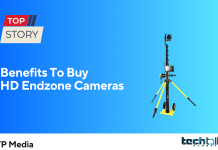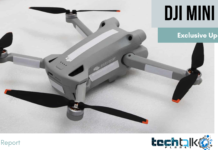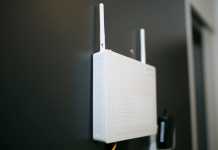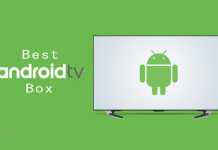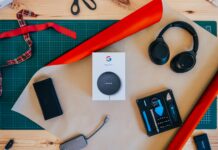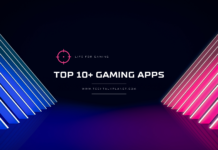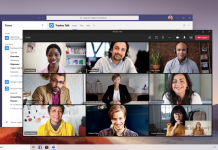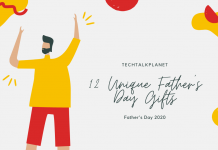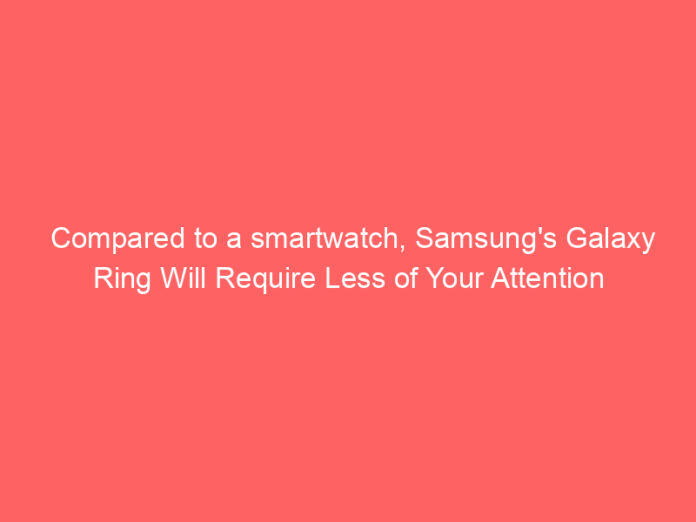
For over ten years, Samsung has been selling smartwatches. However, we were given a sneak peek at Samsung’s upcoming wearables lineup during its Unpacked event on Wednesday: the Galaxy Ring.
Even if they’re not as common as smartwatches, smart rings are nothing new. Celebrities like Kim Kardashian love the Oura ring, and my colleague Bridget Carey just tested Movano’s Evie smart ring, which was made with women’s health in mind. However, Samsung’s foray into the smart ring industry raises the possibility that these tiny, finger-worn gadgets that measure health parameters could be more widely used than merely by athletes and celebrities.
The Galaxy Ring is only one component of Samsung’s larger plan to build a network of gadgets that can provide data to the Samsung Health app, enabling a more comprehensive view of our lifestyles.
As head of the digital health team for Samsung Electronics’ mobile experience division, vice president Hon Pak stated, “I think you should look at the ring as one of many steps towards multi-device engagement.”
At first sight, the Galaxy Ring appears to be simply another piece of jewelry—that is, until you realize that it is covered in tiny sensors and electronics. Although the Galaxy Ring model I saw was a prototype, I was informed that it largely resembles the device that will eventually be sold. Although I was not permitted to take pictures of the ring, I did try on the silver, dark gray, and gold hues. The ring was incredibly light on my finger, even though it felt larger than most women’s jewelry. Similar to the Oura ring, the design is simple and elegant, like the band worn by a groom in traditional wedding settings.
The Galaxy Ring’s launch date, price, kind of sensors, and health metrics collection capabilities in comparison to the Galaxy Watch are just a few of the many unknowns surrounding it. However, Samsung uses the Galaxy Ring as an additional tool to implement its health strategy, which is centered on four key categories of health data: stress, activity, nutrition, and sleep.
Samsung wants to collect that kind of information in a less obvious and disruptive way than a smartwatch with the Galaxy Ring. Simply put, not everyone desires to wear a watch—especially a smartwatch.
“Some people want a more simple form factor, and [the] ring represents that,” stated Pak. She also mentioned that the ring doesn’t need to be as engaged as a watch in order to passively record health data. Additionally, it must have a long battery life, be comfy, and be stylish. And those are the qualities we are focusing on developing.”
To learn more specifics, we’ll have to wait till Samsung releases additional information regarding the Galaxy Ring. Nonetheless, at its Unpacked event, Samsung did showcase some of the new health features it is working on for the Samsung Health app, which may shed some light on the company’s strategy.
Samsung is introducing My Vitality Score, a new metric that is essentially a rating based on sleep, activity, resting heart rate, and heart rate variability that is intended to assess your physical and mental readiness. According to Pak, it will be compatible with Galaxy Watch and Galaxy Ring devices, and it will contain a verified test for gauging your level of alertness in the morning. It sounds a lot like readings and scores we’ve seen from other wearable tech companies, such Fitbit, Garmin, and Oura, all of which have readiness scores previously.
Furthermore, Samsung wouldn’t be the first wearable to include an alertness test; the Citizen CZ smartwatch and Pison Ready bracelet both do this kind of thing. it test is uncommon on rings, though, so it may be one way the Galaxy Ring differs from Oura’s products.
Booster Cards are a significant addition to Samsung Health. They are brief summaries inside the app that explain the “why” behind your health measurements. For instance, a Booster Card may indicate that you were excessively tossing and turning if your sleep score was low. Similar insights are also offered by Garmin and Oura in their apps.
In any case, it’s more proof that tech firms are working harder to link the disparate pieces of information about your health. Samsung is not the only company doing this, though; Fitbit from Google is also utilizing AI to offer more in-depth health data with the release of Fitbit Labs, a new feature that will be available later this year.
Samsung is also considering various approaches to enhance the way users get health information via its app. After all, with a device like the Galaxy Ring lacking a screen, the Samsung Health app remains crucial as ever. In response to a question about whether Samsung is thinking about developing a chatbot or virtual assistant to assist customers in navigating health data, Pak stated that Samsung is exploring the possibility.
“We think the concept of a digital system that helps you to navigate and understand the context and navigate them to solutions are going to be necessary,” Pak stated. “And it remains to be seen what form factor that will take. And it might differ from person to person, am I right? A visual on the TV is what some people want, and some people presumably simply want audio.”
The general scenario Pak outlined, in which smart refrigerators and mattresses that can communicate with your ring or smartwatch as standard, is probably still a ways off. Samsung, nevertheless, believes that the Galaxy Ring is a further step in that direction.


